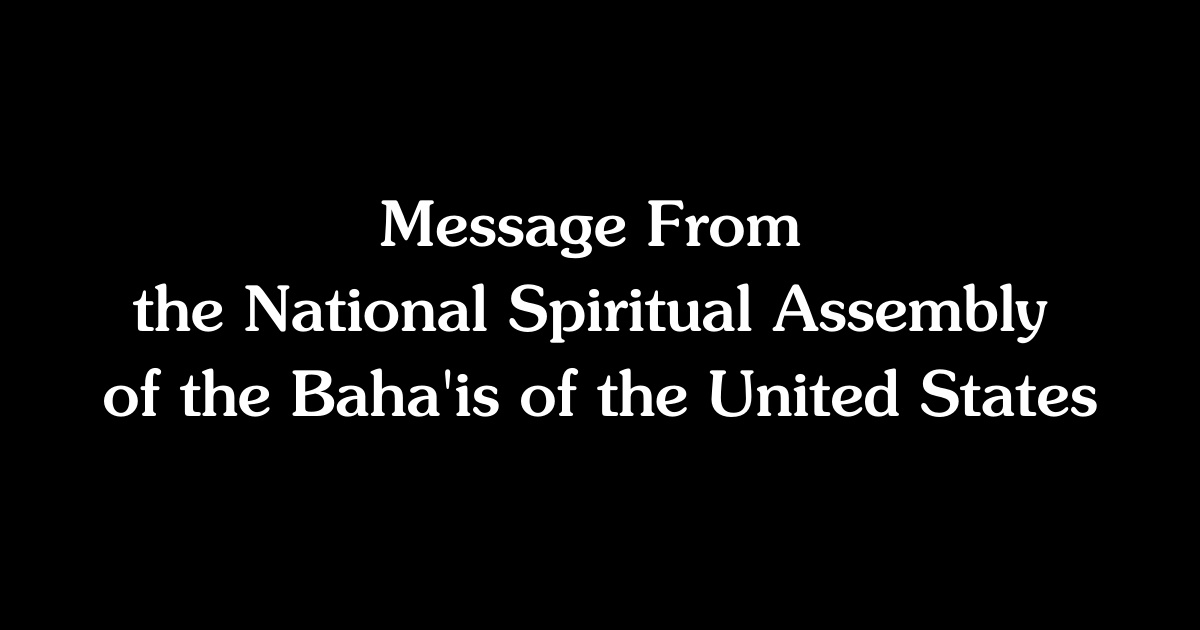The Baha’i Faith, rooted in the teachings of Baha’u’llah, emphasizes the oneness of humanity and advocates for social equity and justice. In recent years, the pressing issue of racial justice has gained prominence in societal discourse, compelling various institutions, including religious communities, to reassess their roles in addressing systemic inequities. This exploration elucidates the Baha’i perspective on racial justice, reflecting both historical underpinnings and contemporary implications.
Historical Context of Racial Justice in Baha’i Teachings
The Baha’i Faith emerged in the mid-19th century in Persia, a period rife with societal divisions and discrimination. Baha’u’llah’s proclamations during this era were revolutionary; they espoused the principle that all humans are equal, transcending racial, ethnic, and class barriers. He posited that inequality and prejudice are detrimental not only to the oppressed but to society as a whole. This philosophical foundation undergirds the Baha’i commitment to racial justice today, compelling followers to actively confront racial prejudices and work toward a more equitable society.
Core Tenets Relating to Racial Justice
At the heart of Baha’i teachings are several key principles that directly relate to the pursuit of racial justice:
- Unity of Humanity: This central tenet encapsulates the belief in the inherent dignity and rights of every individual, irrespective of their racial or ethnic background. It challenges followers to cultivate a sense of global citizenship and foster goodwill among diverse communities.
- Elimination of Prejudice: Baha’i doctrine resolves that prejudice—whether racial, religious, or cultural—is a profound impediment to progress. Followers are called to reflect on their own biases while actively engaging in community efforts to dismantle systemic prejudices.
- Gender Equality: Racial justice and gender equality are intertwined within Baha’i teachings, with both seen as pivotal to societal advancement. Baha’is are encouraged to advocate for the rights of women and girls, recognizing that their empowerment leads to more equitable communities.
The Role of Community Action in Achieving Racial Justice
The Baha’i community emphasizes the importance of collective action in addressing racial injustices. This involves grassroots efforts through community engagement, education, and advocacy. The Baha’i teachings prioritize the empowerment of local communities to address the unique challenges they face concerning racial inequalities. By fostering dialogue and collaboration among diverse community members, Baha’is strive to cultivate environments of mutual respect and understanding.
Educational Initiatives and Discourse
Education represents a fundamental avenue through which the Baha’i community promotes racial justice. Baha’is are encouraged to engage in thoughtful discourses that critically examine racial issues while fostering environments conducive to learning. Educational initiatives may include:
- Workshops and Seminars: These gatherings provide platforms for community members to explore the complexities of racial inequality, share personal narratives, and discuss actionable solutions.
- Interfaith Dialogues: Collaborating with other faith communities facilitates broader discussions on the moral imperatives of justice and equity, reinforcing the collective commitment to combat racism.
- Literature and Resources: Circulating literature that addresses racial justice not only educates but also mobilizes individuals toward participation in justice-oriented initiatives.
Engagement with Contemporary Movements
In light of recent developments regarding racial justice movements, Baha’is are urged to engage proactively with these issues. The teachings stress that active participation in social justice movements is not merely a moral obligation; it is a demonstration of one’s faith in action. Baha’is are called to support initiatives that seek to rectify injustices, thereby amplifying the voices of marginalized communities and standing in solidarity against oppression.
Self-Reflection: A Continuous Journey
As Baha’is navigate the complexities of racial justice, self-reflection emerges as a vital component. This involves introspection regarding one’s personal biases and privileges. Followers are encouraged to undertake this journey of self-discovery not only to grow individually but to enhance their collective capacity to address racial injustices within their communities. Workshops and dialogues can serve as mechanisms for engaging in this reflective practice, fostering awareness and responsibility.
Conclusion: A Vision of a Just Future
The path to racial justice, as espoused by Baha’i teachings, is one of proactive engagement, self-reflection, and communal action. It is a journey beset with challenges but also laden with profound possibilities for transformation. The Baha’i perspective offers a robust framework for approaching racial issues, rooted in the conviction of humanity’s oneness. As society continues to grapple with the implications of systemic discrimination, the Baha’i community remains steadfast in its commitment to advocate for justice, equity, and the elevation of all individuals. Through devotion to these principles, a more harmonious future can be envisioned—one characterized by the integration and celebration of diversity rather than division.
